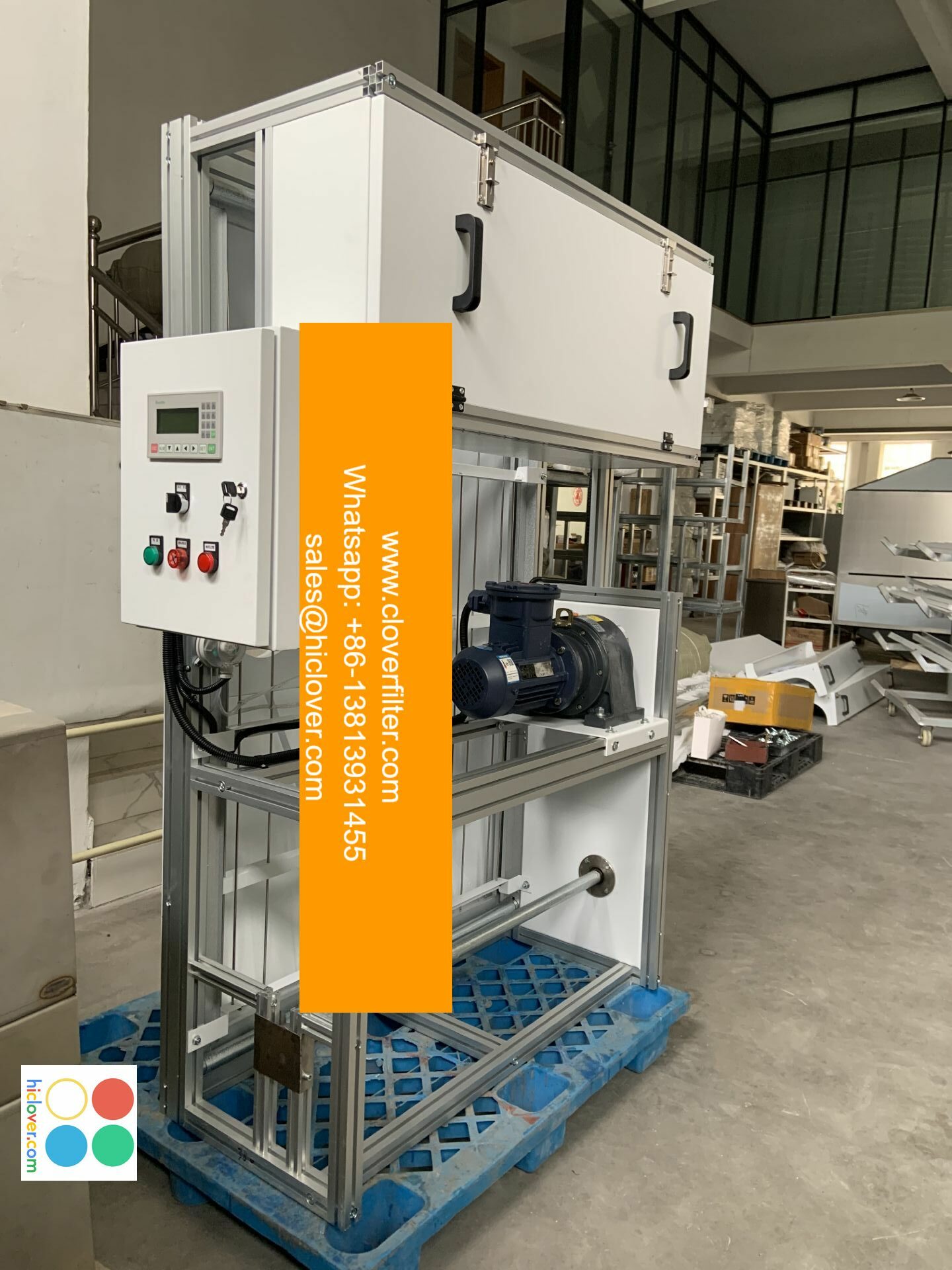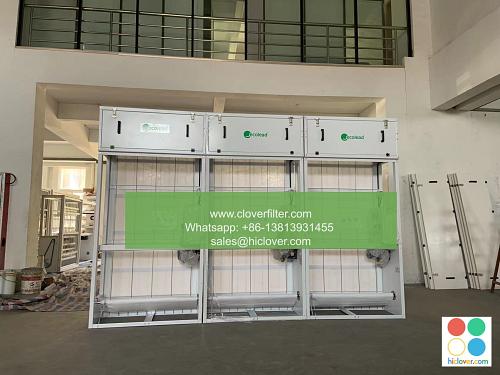The Role of Automatic Roll Air Filters in British Columbia Cleanroom Contamination Control

The province of British Columbia, known for its stringent environmental regulations, has a thriving industry that relies heavily on cleanrooms for various applications, including pharmaceuticals, electronics, and biotechnology. Cleanrooms are controlled environments that maintain a high level of air purity, which is essential for sensitive manufacturing processes. One crucial component in maintaining the cleanliness of these environments is the automatic roll air filter. In this article, we will delve into the role of automatic roll air filters in British Columbia cleanroom contamination control, exploring their benefits, how they work, and their significance in maintaining the high standards required in these sensitive facilities.
Automatic roll air filters are designed to capture airborne contaminants, such as dust, pollen, and other particles, that could compromise the integrity of the cleanroom environment. These filters are especially useful in British Columbia, where the lush outdoors can pose a challenge to indoor air quality. By automatically rolling out new filter media as the old becomes saturated with contaminants, these filters ensure a continuous and high level of air purification. This feature is particularly beneficial in cleanrooms, where the slightest contamination can have significant consequences on product quality and safety.
The mechanism behind automatic roll air filters involves a spool of filter media that gradually unrolls as the filter becomes laden with particles. This process is typically triggered by a pressure differential across the filter or a predetermined time interval. The continuous replacement of the filter media ensures that the air filtration efficiency remains high, capturing particles as small as 0.3 microns, which includes most bacteria, viruses, and other contaminants that could be harmful in a cleanroom setting.
In British Columbia, the implementation of automatic roll air filters in cleanrooms is not just a best practice but often a regulatory requirement. The province’s commitment to environmental and health standards means that industries operating within cleanrooms must adhere to strict contamination control measures. Automatic roll air filters play a pivotal role in this adherence, offering a reliable and efficient means of maintaining the delicate balance of cleanroom environments. Their effectiveness in removing airborne contaminants is paramount in preventing product defects, ensuring operator safety, and complying with the stringent regulations that govern these industries.
Moreover, the use of automatic roll air filters contributes to the overall efficiency and cost-effectiveness of cleanroom operations. By minimizing downtime for manual filter replacements and reducing the labor associated with filter maintenance, these filters help in optimizing production processes. Additionally, their ability to maintain a consistent level of air quality reduces the risk of contamination-related failures, which can be costly in terms of both product loss and regulatory penalties.
In conclusion, automatic roll air filters are an indispensable component of cleanroom contamination control in British Columbia. Their ability to provide continuous, high-efficiency air filtration makes them a critical tool in maintaining the purity and integrity of these controlled environments. As industries in the province continue to evolve and grow, the role of these filters will only become more pronounced, underscoring their importance in supporting the high standards of quality, safety, and compliance required in cleanroom operations.
Frequently Asked Questions (FAQs)
- What is the primary function of automatic roll air filters in cleanrooms?
Automatic roll air filters are designed to capture airborne contaminants, ensuring the air purity necessary for sensitive manufacturing processes in cleanrooms. - How do automatic roll air filters contribute to cost-effectiveness in cleanroom operations?
They minimize downtime for manual filter replacements and reduce labor associated with filter maintenance, thus optimizing production processes and reducing costs. - What types of contaminants can automatic roll air filters capture?
These filters can capture a wide range of airborne contaminants, including dust, pollen, bacteria, viruses, and other particles as small as 0.3 microns. - Are automatic roll air filters a regulatory requirement in British Columbia cleanrooms?
While not universally mandatory, their implementation is often required to meet the strict contamination control standards and regulations governing industries operating within cleanrooms in the province. - How often should automatic roll air filters be maintained or replaced?
The maintenance and replacement schedule for automatic roll air filters can vary depending on the manufacturer’s recommendations, the level of contaminants in the air, and the specific requirements of the cleanroom environment.

